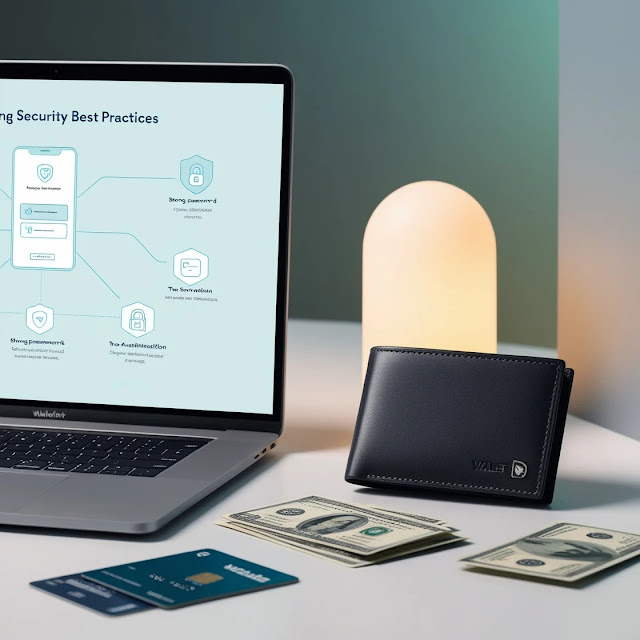How Wallet Providers Educate Users about Security Best Practices
In today’s digital age, the security of cryptocurrency and digital assets is of paramount importance. As the number of users investing in cryptocurrencies increases, wallet providers play a crucial role in educating their users about security best practices. This education not only helps protect individual assets but also fosters a safer and more responsible digital ecosystem. Through various resources, tools, and strategies, wallet providers empower users to understand potential threats and adopt best practices that ensure the security of their wallets. In this article, we will explore the methods wallet providers use to educate users about these essential security measures.
 |
| How Wallet Providers Educate Users about Security Best Practices |
Understanding Digital Wallets
Digital wallets are software applications that allow users to store and manage their cryptocurrencies. There are various types of wallets, including hot wallets, cold wallets, and hardware wallets, each with distinct security features. Understanding the different types of wallets is fundamental for users to choose the one that best suits their needs. Wallet providers often create comprehensive guides to educate users about these options, highlighting the advantages and disadvantages of each type. Such resources help users make informed decisions and emphasize the importance of securing their assets based on their individual circumstances.
The Importance of Security
Security is a critical concern for anyone involved in cryptocurrency. With the rise of hacks and scams, users must understand the risks associated with storing digital assets. Wallet providers stress the significance of security not just as a feature but as an integral part of the user experience. By emphasizing that the responsibility for security ultimately lies with the user, wallet providers encourage proactive behavior. This may include adopting measures such as enabling two-factor authentication (2FA), creating strong passwords, and regularly updating wallet software. The more educated users are about potential risks, the more equipped they become to protect their investments.
Educational Resources Provided by Wallet Providers
Many wallet providers offer a wealth of educational resources to guide users in securing their assets. These resources often include:
- Webinars and Workshops: Regularly scheduled online sessions provide users with direct access to security experts.
- Blog Posts and Articles: Wallet providers frequently publish articles that cover various security topics, from basic best practices to advanced security techniques.
- Video Tutorials: Visual aids can help simplify complex concepts, making it easier for users to understand how to secure their wallets.
- FAQs and Knowledge Bases: Comprehensive FAQ sections help answer common questions about security measures and wallet functionality.
These educational initiatives foster a culture of awareness, equipping users with the knowledge they need to safeguard their assets.
User-Friendly Interfaces and Security Alerts
A well-designed user interface (UI) can significantly enhance the user experience and promote security best practices. Many wallet providers incorporate user-friendly designs that guide users through security features and alerts. For instance, notifications can be sent to users when there are suspicious login attempts or when software updates are available. Furthermore, intuitive interfaces can make it easier for users to set up security measures, such as enabling 2FA. By making security features accessible and straightforward, wallet providers help reduce the chances of user error and enhance overall security.
Community Engagement and Feedback
Engaging with the user community is another effective method wallet providers employ to educate users. Many wallet providers maintain active forums, social media channels, and community groups where users can share experiences and tips regarding security practices. This peer-to-peer interaction fosters a sense of community and encourages users to stay informed about the latest security threats. Additionally, wallet providers often solicit feedback from users regarding their security concerns, which can inform future educational content and product updates.
Future Trends in Wallet Security Education
As technology continues to evolve, wallet providers must adapt their educational approaches to address new security challenges. Future trends may include:
- AI-Powered Security Solutions: Leveraging artificial intelligence to detect anomalies and provide real-time security alerts to users.
- Gamification of Learning: Introducing gamified elements in educational resources to make learning about security more engaging.
- Integration with DeFi Protocols: As decentralized finance (DeFi) gains traction, wallet providers will need to educate users about security practices specific to this ecosystem.
These trends indicate a proactive approach to security education, ensuring users remain informed and vigilant against emerging threats.
What are the common security risks associated with digital wallets?
Common security risks include phishing attacks, malware, and loss of private keys. Users must remain vigilant and employ strong passwords and 2FA to mitigate these risks.
How can users secure their wallets effectively?
Users can secure their wallets by using strong, unique passwords, enabling 2FA, regularly updating wallet software, and being cautious of unsolicited communication or links.
What role do wallet providers play in user security?
Wallet providers play a vital role by offering educational resources, intuitive security features, and community engagement opportunities to inform users about best practices.
Are hardware wallets safer than software wallets?
Generally, hardware wallets are considered safer than software wallets because they store private keys offline, making them less vulnerable to hacking attempts.
How often should users update their wallet software?
Users should update their wallet software as soon as updates are released to ensure they have the latest security patches and features.
In conclusion, wallet providers play a pivotal role in educating users about security best practices for managing their digital assets. Through various educational resources, user-friendly interfaces, and community engagement, they equip users with the knowledge necessary to protect their investments effectively. By fostering a culture of security awareness and remaining responsive to emerging threats, wallet providers not only enhance user confidence but also contribute to a more secure cryptocurrency ecosystem. As digital assets continue to gain popularity, the importance of security education will only grow, making the efforts of wallet providers essential for user safety and success.





